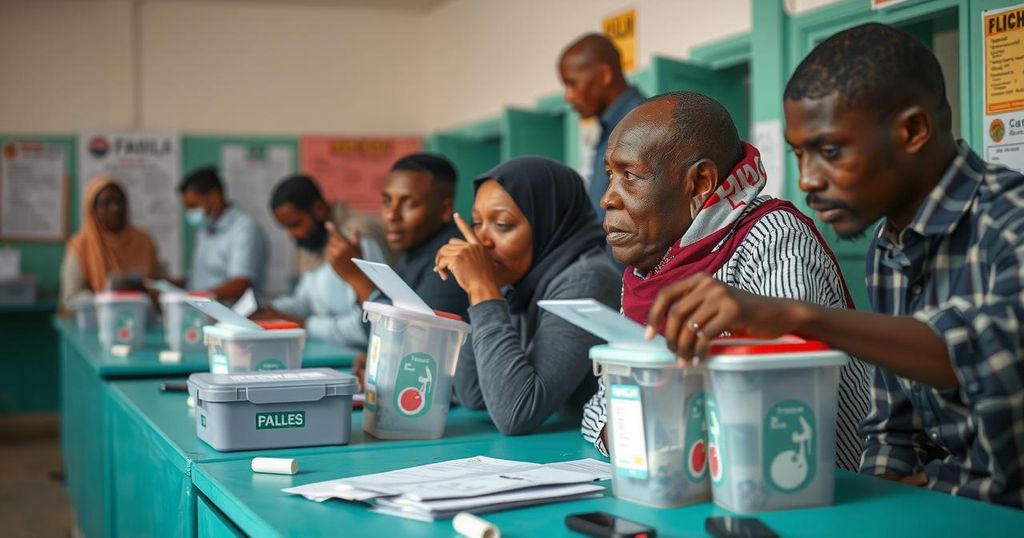Chad’s Parliamentary Elections Under Scrutiny Amid Boycott and Allegations of Fraud

Chad holds its first parliamentary election in 13 years amid opposition boycotts and claims of electoral fraud. Low voter turnout was reported, particularly in the capital, as the government posits the elections as a step towards democratic transition. Tensions persist with allegations against the ruling party regarding manipulated results, alongside ongoing security threats from extremist groups in the region.
Voting has commenced in Chad’s first parliamentary election in 13 years, a significant event that the government touts as a crucial move towards reinstating democratic governance. The vote encompasses elections for a new parliament, regional assemblies, and local councils amidst notable opposition calls for a boycott. With voter turnout reported to be low in the capital city of N’Djamena, the electoral process takes place in a country marked by poverty and political unrest.
Opposition parties have urged the country’s eight million eligible voters to refrain from participating, asserting that the election results have been predetermined. This boycott is expected to favor candidates aligned with President Mahamat Idriss Deby Itno, who ascended to power following a military coup in 2021 and later secured legitimacy in a controversial presidential election in May. The president urged citizens to vote—posting on social media that today marks a “historic day”.
Recent statements from opposition leaders, including Succes Masra of the Transformers party, assert that the variables in the election have already been manipulated. Meanwhile, some citizens expressed a desire for change, emphasizing the need for jobs, equitable resource access, and justice in their communities. For logistical reasons, members of the military and nomadic populations participated in voting prior to the main event, with official reports boasting record turnout among these groups.
Monitoring from foreign observers and political party representatives is underway as polling stations remain open until the early evening. Allegations of electoral fraud have surfaced, with opposition parties reporting missing ballots and expressing need for vigilance against suggested fraudulent activities orchestrated by the ruling Patriotic Salvation Movement party.
The elections are being held amid ongoing security tensions linked to oscillating attacks from the Boko Haram group in the Lake Chad region, the recent conclusion of a military accord with France, and claims of Chad’s involvement in conflicts in neighboring Sudan. The current government positions these elections as a final step in transitioning the nation back to democratic rule, following President Deby’s rise to power after his predecessor’s lengthy tenure.
Chad has been under military governance since the death of President Idriss Deby in April 2021. The transitional government, led by his son, President Mahamat Idriss Deby Itno, declared the necessity for democratic elections to restore political stability and legitimacy. The composition of the electorate has been controversial; the opposition has questioned the transparency of the electoral process and the fairness of the elections, arguing that the ruling authorities have manipulated outcomes in their favor. Historical context is important as Chad has had a tumultuous political environment, characterized by civil unrest and military rule since gaining independence from France.
In summary, Chad’s parliamentary elections represent a significant moment in the nation’s political landscape after over a decade of absence. The widespread opposition boycott and allegations of pre-determined outcomes have cast doubts on the credibility of the electoral process. While there are calls for participation from the ruling government, substantial segments of the population remain distrustful of the electoral integrity amid a backdrop of poverty and continuing security threats. This election remains pivotal for Chad’s journey towards democracy.
Original Source: www.aljazeera.com







